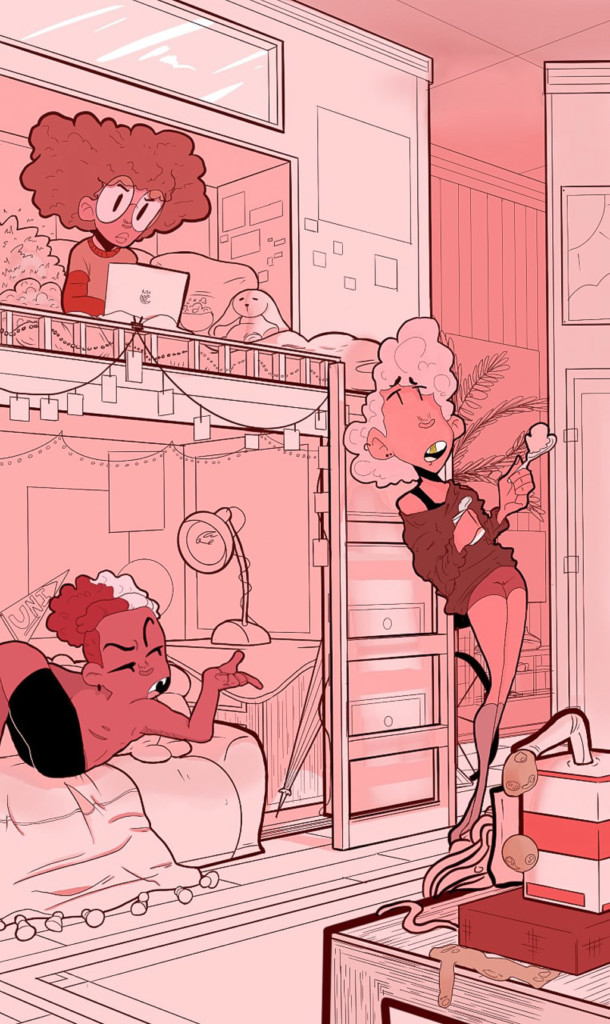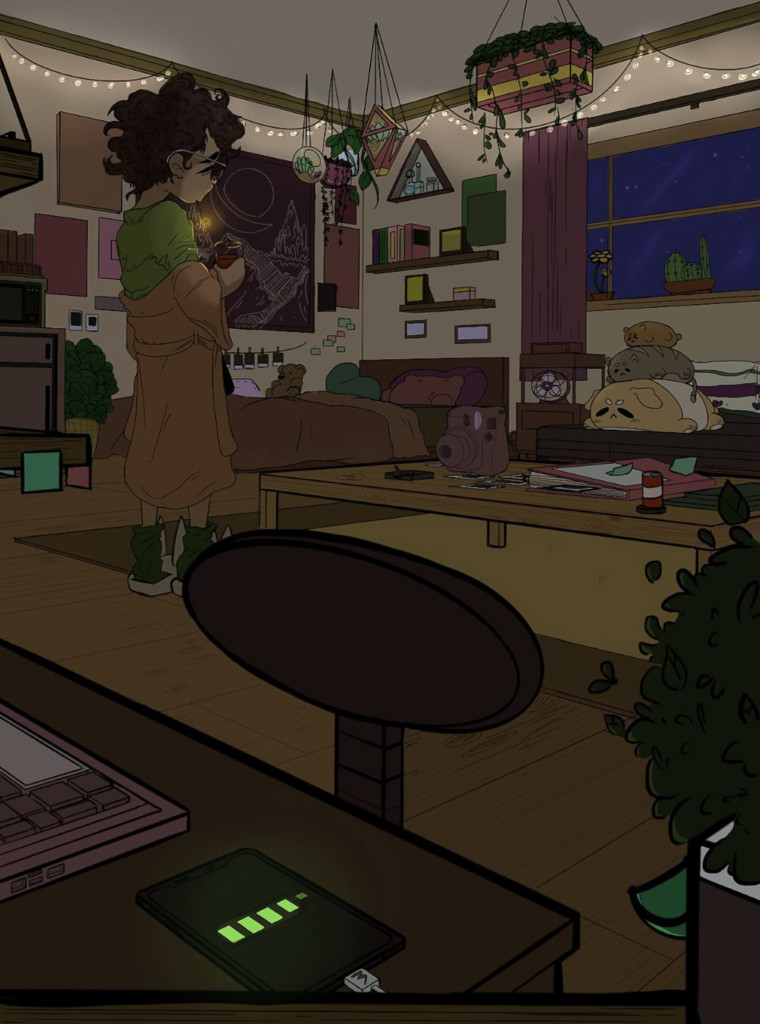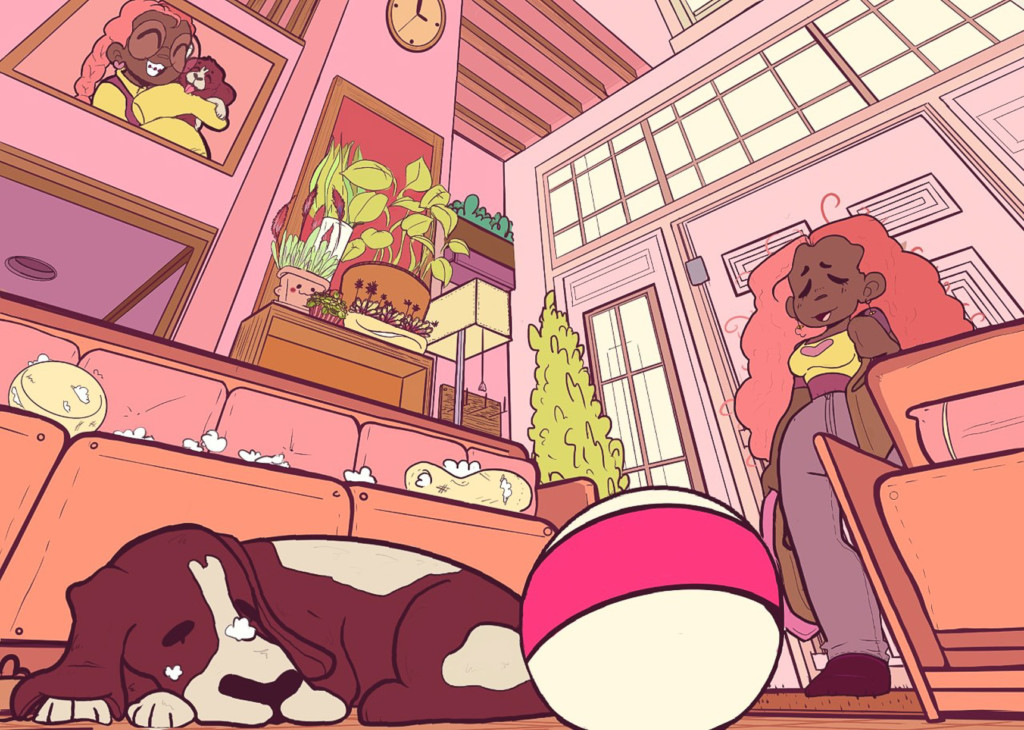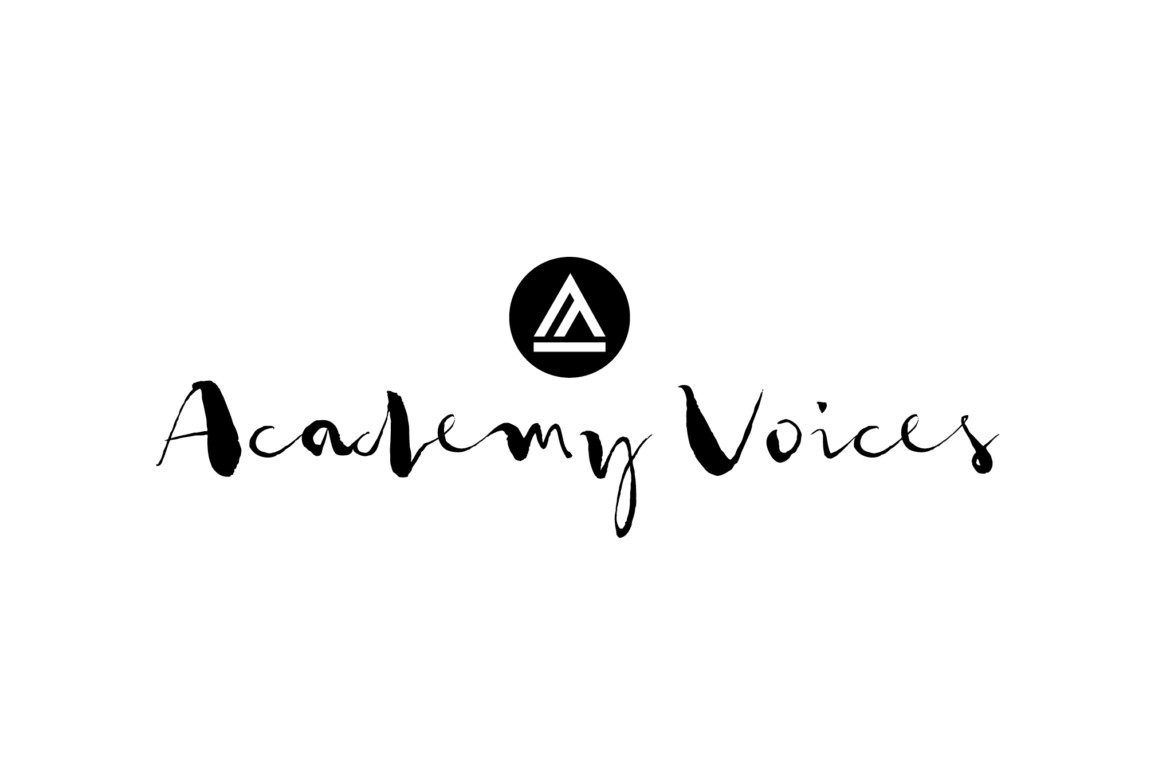By Greta Chiocchetti
For School of Illustration student AJ House, art is more than a mode of expression or a future profession—it’s a tool to fight for justice.
“Art has always been a part of my identity, but lately I’ve noticed the power of my identity in my art,” said House. “Being represented as a person of color in art is powerful—and it reminds the world that we exist, and we’re not going anywhere.”

House, whose work was featured in this year’s Spring Show, said his social media timeline has been full of impactful art surrounding the Black Lives Matter movement—and that itself is one of the most effective ways to inspire people to repair a system that doesn’t work for everyone.
“The more that artists continue to promote the social change that we need, even in the smallest ways possible, the stronger we all get collectively,” said House. “Art communicates messages in such a powerful way, like directly to your heart. It’s important for us as artists to get it across to people that we need the status quo to change.”
In a conversation with Art U News, House spoke about his artistic journey and how he and his online community are harnessing its power for social good.
Why did you decide to attend the Academy?
Art is kind of like the only thing I’m good at. [Laughs] I’ve been making art since I was a kid, and it would be kind of like a fish out of water scenario if I didn’t pursue it in adulthood. I also always wanted to move to California—I felt like the universe was calling me to San Francisco. And the Academy seemed like the best place to do both of those things. I’m so grateful for all the resources that I have access to at school—not only equipment and software and industry-standard stuff, but also the teachers who have been successful in their industries and have great advice to give.
Have you always known that you wanted to be an artist?
Yeah, I’ve always known that I wanted to be some kind of artist. Ever since I was a kid, I’ve always had an interest in cartoons and the funnies in the newspaper—that makes me sound old. And it just sort of always piqued my interest. But when I was growing up, I really didn’t know that artists can actually make a living. I thought it was just a hobby and not a real job. But then I kind of grew up and found out that, hey, I could make money off this. There [are] other people around me that are making money off this. I might as well go and become a professional at it.
How did you develop your style?
I sort of developed my style from watching different kinds of small animators on Instagram and on YouTube. I get a lot of inspiration from my immediate community. Of course, everyone draws inspiration from the big names in like comics and animation illustrations, things like that. But it takes a village to build an art site, so I’ve definitely learned and grown from the art being made in my community.
What stories are you hoping to tell through your art?
Family is a big theme in my work. I want people to feel like if they don’t have a close-knit family in their lives or if they’re estranged from their family that they can see my art and the characters I’ve tried to bring to life and kind of build a sort of parasocial bond and I don’t know, feel that familial kind of connection. That’s what I really hope people walk away with because that’s what I feel when I make it—this is your home, even if you don’t have one.

I’m a lot closer to my chosen family, which is my friends that I met at the Academy. I think we’re a lot closer than my actual family. I’m not estranged from my family because I still have a connection with them. It’s just that we’re often not on the same wavelength, ideologically. They can be very traditional. They have their ways of life. And I may or may not agree with them and I don’t live that way.
What do you think the role of art is right now in social movements?
I think art always had a role in social movements. And I think that role still hasn’t changed. It’s basically to invoke emotion, to inspire, to basically show an idea in a more tangible sense. The anger, the sadness, the pain, even the joy, the happiness that people on the side of the revolution are feeling. It’s a powerful way to send a message—and to humanize the issues.
Do you consider yourself part of the Black Lives Matter movement?
Absolutely, I’m 100 percent a part of the Black Lives Matter movement, and I think everyone should be. I don’t know why you wouldn’t be. I think the reason why people think they’re against Black Lives Matter is just a matter of pure ignorance. I think that people don’t realize that we all know all lives matter, every life matters. But right now, we’re focused on the Black ones because Black people are being slaughtered in the streets. So, I think that’s what people need to realize and stop trying to push it away—you’re saying all lives matter when everyone knows that, but you’re not acknowledging that Black lives matter, too.
How have you seen social media mobilized in support of the movement?
I have a small online community on my Instagram, but among us, we constantly are promoting Black-owned businesses. We’re constantly pushing out the videos of the riots so people can see them firsthand that, you know, they start off peaceful and then end up not so peaceful. I would say we’re constantly uplifting Black creators—myself, I uplift other Black creators. The main purpose is that non-POC artists can see us and not pretend that we’re not there anymore because that happens way too often. People just pretend that we don’t exist.
Do you see this movement as having more of a lasting impact than the ones before it?
I do think it’s different this time around. I think that a lot of people are trying to be like, “Okay, George Floyd died, y’all had your ceremony. Okay, moving on.” And still, there’s an entire laundry list of people who still don’t have justice. Everyone posts about Breonna Taylor; she still doesn’t have justice. I can’t even list the amount of people that don’t have justice. And this outrage is well justified. And I think that this cycle of being outraged, then going back to “life as we know it” is about to be broken. Because a lot of people are tired of the trending page just being Black people being murdered and then like, the next day, it’s like Kim Kardashian bought a new iPhone.

What can members of the Academy community do to support the movement?
The first thing would be to sign the petitions to get justice for the Black lives that were lost. Another way is to help Black lives that we haven’t lost—uplifting the community, uplifting their voices. Just allowing Black folks to share their experiences and not trying to speak over them or speak ahead of them. I think that’s an excellent way to start.
Once you start there, the ball gets rolling. Start educating yourself about it. It’s been so many years that we’ve had other people speak for us, and that other people speak over us or speak past us. And, it’s come to the point where it’s too much—it’s already been too much for a really long time, but now it’s too much, you know? So that would be the ground point there. And I guess once you start educating yourself, you can kind of take the training wheels off and go out there and bring justice.
What advice would you give your younger self about following your dream of becoming an artist?
I would tell myself not to burn all of my old sketchbooks because I was so frustrated with my progress at the time. I would tell my younger self that art is like the circle of life, I guess. Whatever you start with, it won’t be what you end up with.
I would also tell myself not to let anyone deter you from your dreams. I almost gave up art many times because I felt like I wasn’t at the same level as other people on the internet. Don’t compare yourself to others.
